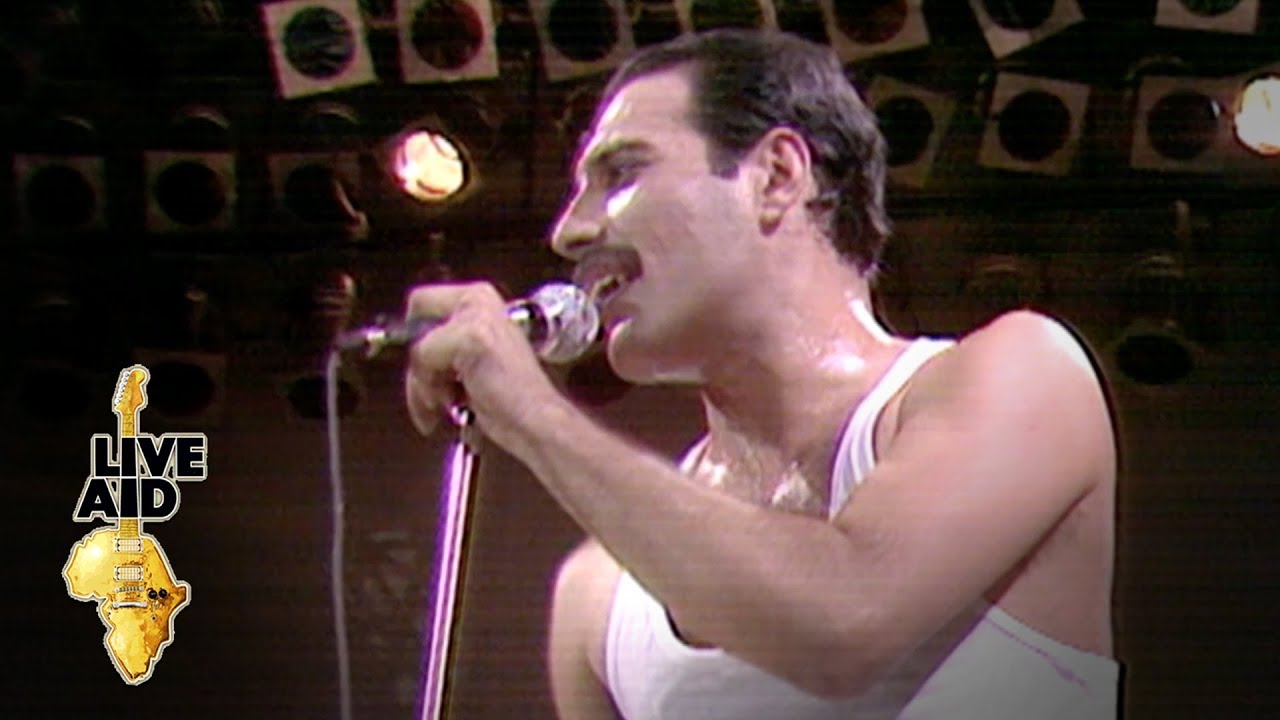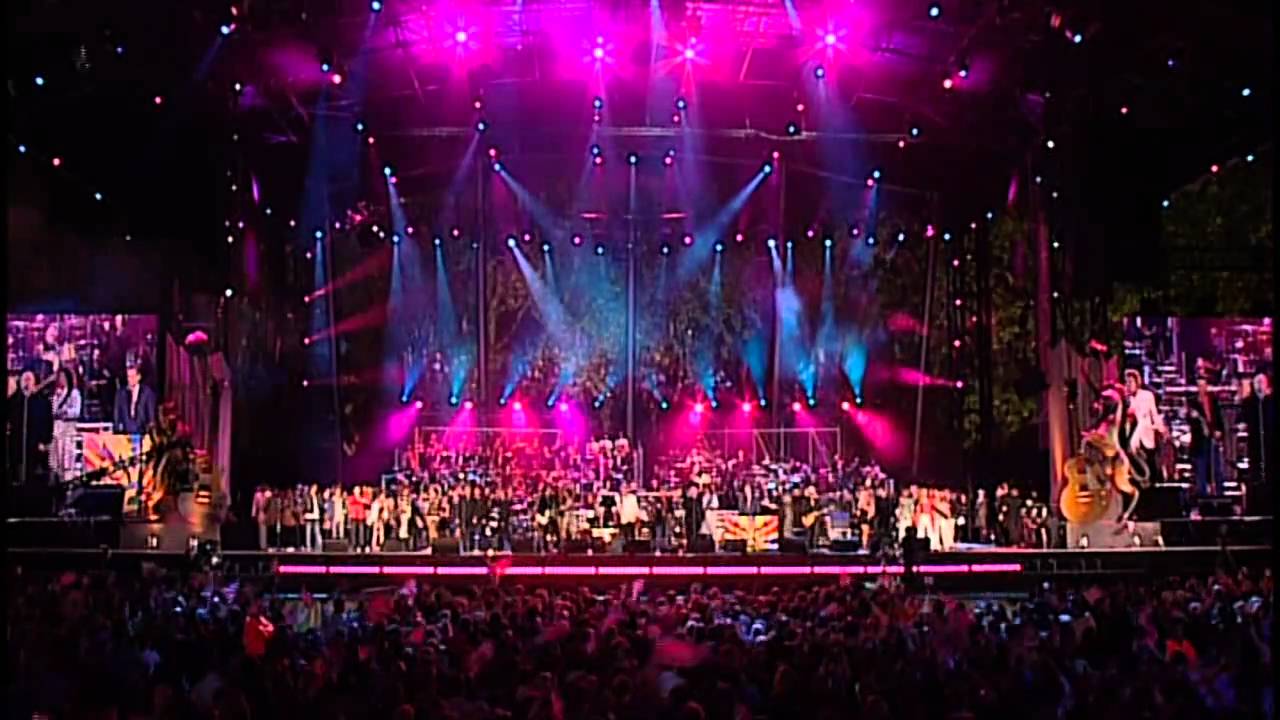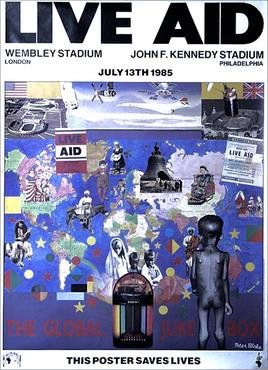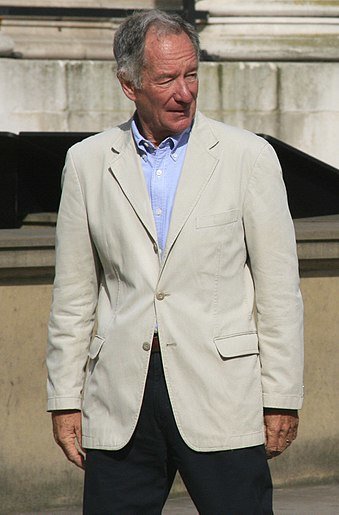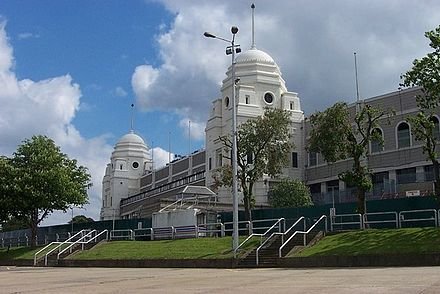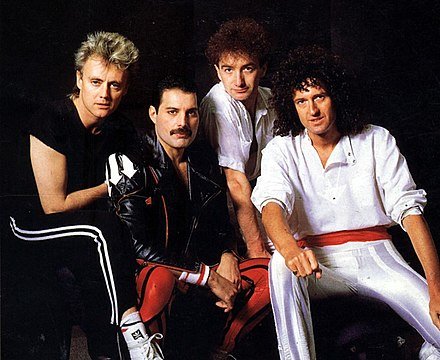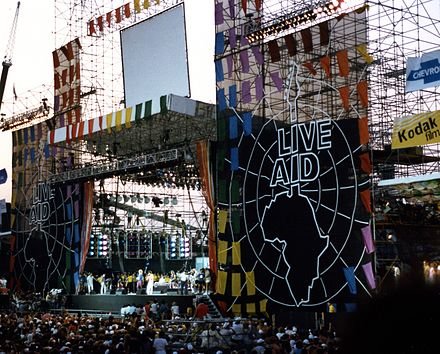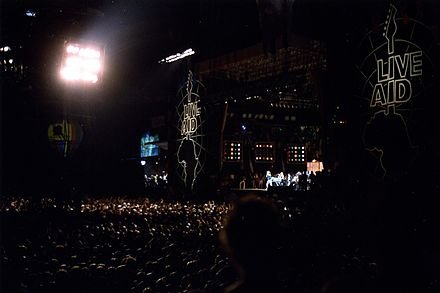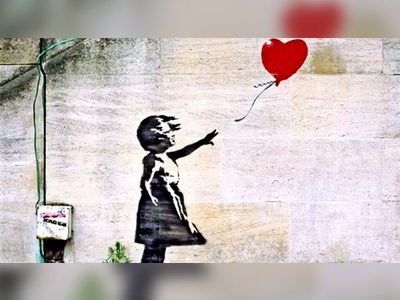British Heritage
Remember, Cherish, Learn.
beta
Live Aid 1985
A Landmark in British Heritage and Global Philanthropy.
Introduction
Live Aid, the historic benefit concert held on Saturday 13 July 1985, stands as a testament to the power of music and human compassion. Organized by Bob Geldof and Midge Ure, Live Aid aimed to raise famine relief funds for Ethiopia in response to the devastating 1983-1985 famine. The event was a monumental music-based initiative that had a profound impact on British heritage and global philanthropy. Held simultaneously at Wembley Stadium in London and John F. Kennedy Stadium in Philadelphia, Live Aid was not just a concert; it became a symbol of solidarity and humanitarian efforts on a global scale.
Contribution to British Heritage
Live Aid made an indelible mark on British heritage, solidifying the nation's reputation for compassion and empathy in times of crisis. The movement began with the release of the charity single "Do They Know It's Christmas?" in December 1984, which set the stage for the larger Live Aid concert. The initiative galvanized the British public and celebrities alike, sparking an outpouring of support and donations for famine relief in Ethiopia.
The British musicians and artists who participated in Live Aid showcased their talent and solidarity, making the event a source of immense national pride. The concert itself became one of the most significant moments in British music history, as it brought together some of the country's most iconic bands and musicians, including Queen, U2, David Bowie, and The Who, among many others. Their electrifying performances captivated the global audience and emphasized the power of music as a force for positive change.
Moreover, Live Aid demonstrated the potential of using technology and media to unite people worldwide for a common cause. With an estimated 1.9 billion viewers in 150 nations, nearly 40 percent of the world population tuned in to watch the broadcast, making it one of the largest satellite link-ups and television broadcasts in history. The event showcased Britain's ability to organize and execute a massive international charity event, solidifying its reputation as a global leader in philanthropy and humanitarian efforts.
Legacy of Live Aid
The legacy of Live Aid extends far beyond the one-day concert. It sparked a renewed sense of humanitarianism and raised awareness of global issues, especially regarding hunger and poverty. Live Aid's impact on famine relief has been a subject of debate over the years, but its ability to bring the plight of Ethiopia to the forefront of public consciousness cannot be denied. The event led to increased political attention and support for humanitarian causes among Western governments, with one aid relief worker remarking that "humanitarian concern is now at the center of foreign policy."
Bob Geldof's statement that Live Aid addressed the moral repulsion of people dying of want in a world of surplus resonated with audiences worldwide. It ignited conversations about the responsibility of privileged nations to assist those in need and motivated governments to allocate more resources to international aid efforts.
Furthermore, Live Aid helped establish the blueprint for future benefit concerts and charity initiatives. It demonstrated the potential of the entertainment industry to mobilize massive global support and raised the bar for subsequent fundraising events. It also set a precedent for the use of music and celebrity involvement in raising awareness for humanitarian causes, paving the way for other charitable movements like Live 8 in 2005.
Success and Impact
Live Aid was an astounding success in both raising funds and generating awareness for the Ethiopian famine relief. While the exact amount of money raised through the concert remains a topic of discussion, estimates suggest that between £40 and £50 million (approximately $70 to $90 million) was collected in the immediate aftermath. However, the event's long-term impact went beyond financial contributions.
The concert was an extraordinary display of human compassion and unity. It showcased the power of collective action and demonstrated that music could be a universal language for conveying urgent messages and fostering a sense of global community. By bringing together artists, viewers, and governments from various nations, Live Aid exemplified the spirit of international cooperation for a common humanitarian goal.
Additionally, Live Aid led to increased scrutiny and accountability for how aid funds were distributed. Though some allegations arose regarding the diversion of funds to the Ethiopian government, the event also encouraged transparency and better governance in humanitarian organizations. It spurred discussions about the most effective ways to provide aid and support to those in need.
Conclusion
Live Aid 1985 remains an iconic and cherished event in British heritage and the annals of global philanthropy. It transcended geographical and cultural boundaries, uniting people from all walks of life in a shared mission of compassion and empathy. The concert's impact on raising funds and awareness for famine relief in Ethiopia was significant, but its broader legacy lies in inspiring subsequent generations to use their talents, resources, and influence for the betterment of humanity.
Live Aid showcased the best of British compassion, creativity, and innovation, setting a precedent for future humanitarian initiatives and cementing Britain's position as a global leader in philanthropic efforts. The spirit of Live Aid lives on, reminding us of the power of collective action and the potential for positive change when we come together to address global challenges.
- Live Aiden.wikipedia.org





